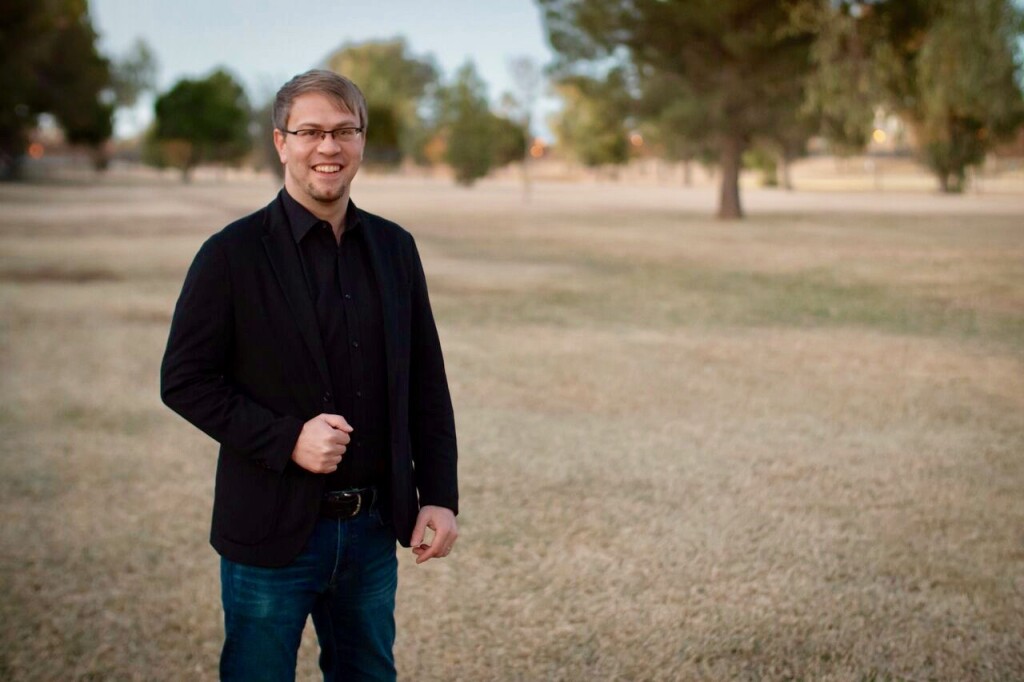David Nagai runs Bridge Beyond English in Motomachi and online. This high-level English class is different from ordinary English classes where students learn grammar or get an introduction to English. Instead, it’s a small class size (four students max per class) and it’s for those who have intermediate or higher level English. Its purpose is to help them think creatively and communicate harmoniously with different types of people. His class is influenced by his unique background.
Although Nagai has American parents, he was born and raised in Taiwan and has lived in six different countries including the United States, Bangladesh, Philippines, India and now Japan. He has also studied four languages. His international experience has given him the vision to promote global diversity and connection in order to make the world a better place. He says, “It’s a privilege to bring these diverse perspectives to this space where we can learn from those voices and also learn from each other as we understand each student perspective”.
Before moving to Japan, Nagai lived and worked in the slums in India where he supported NGO education and other health and small business projects. He moved to Japan about five years ago to marry his wife, Chami (featured in YSM#112), and worked with an NGO project in the post-tsunami zone in Tohoku. The couple eventually decided to relocate and settle down in Yokohama.
While teaching at an ordinary English school, Nagai found himself more passionate about higher level English. He wanted to facilitate a space where people can not only practice high level English, but also explore different current events and important global topics while also stimulating their creativity. He decided to start his own school and launched on a small scale in his apartment.
In his class, students discuss diverse topics like gender, climate change, racial equality, religion, politics, philosophy, and more. “I want to help students use English to communicate and innovate in their life and work,” says Nagai. “With the quickly changing world, students want and need more flexible, creative thinking, an understanding of diversity, and an ability to empathize with people from different cultures and backgrounds. I believe that creativity and communication skills are more important now than ever as we adjust to the changing world.”
“With my experiences around the world, I’ve been learning and realizing I don’t understand the world very much. I just see more and more ways of thinking through religions, cultures, languages, and worldview paradigms. I just keep on enjoying learning. I hope I can share that with people in some way in my classes. I hope I can bring those diverse perspectives to the table and also learn from my students’ unique perspectives.”
Currently his students are mostly Japanese, but a few have been Taiwanese, Chinese, Nepali, and South Korean. What they all have in common is that they have quite good English and want to use it to connect more deeply with the changing world. They seem satisfied with his class, and one of them actually commented, “The topics and questions Nagai prepares every week are thought-provoking and helpful in developing my logical thinking and speaking in English.”
When asked what he thinks of life in Yokohama, he says, “I like it. Sometimes it feels so normal to be in Yokohama. Yokohama, especially Naka-ku, is very diverse, very international. I live near Chinatown, Yamate and Ishikawa-cho. It’s a very diverse area with lots of different cultures and different people.”
Communication is not just about transferring information to another person, but about expressing one’s views and emotions, and understanding each other. English is useful as a tool to communicate with different people, but one must have global perspective and creative thinking to understand others. As a bridge between people, cultures, and ideas, Nagai brings these diverse perspectives to this space to make the world a better place.
Website: bridgebeyondenglish.com


